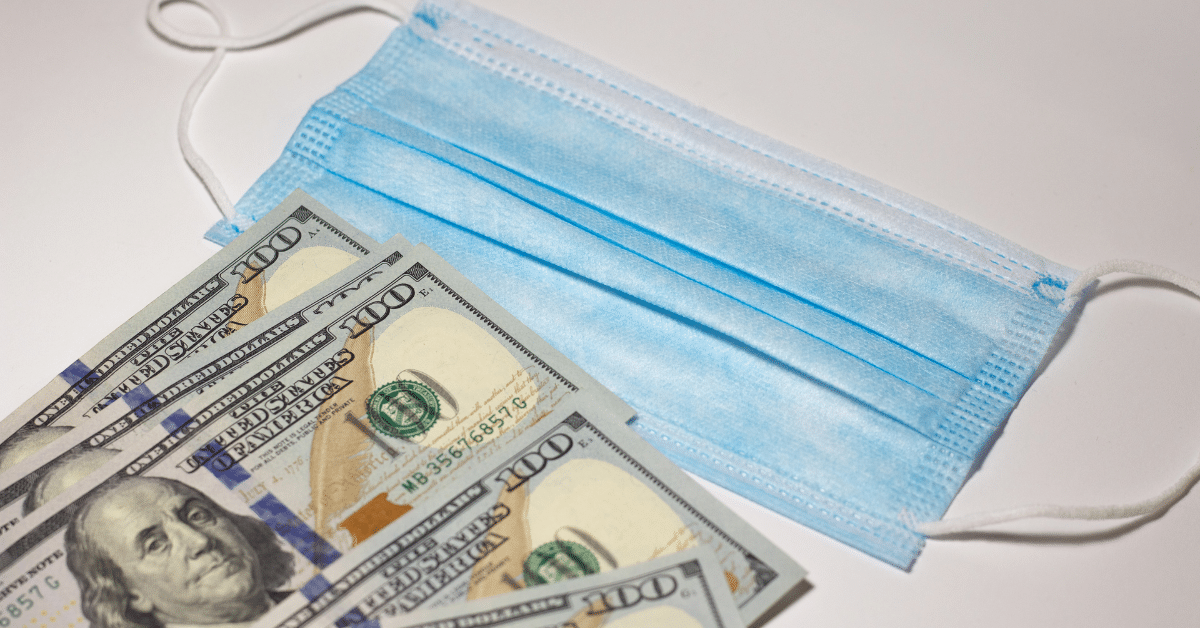While we’re all worrying about physical health, concern about our financial health isn’t far behind. Furloughs, layoffs, and suspended contracts are appearing in more and more industries, while jobless numbers are climbing at unprecedented levels. Meanwhile, the market’s volatility has many people wondering if there’s anything they can do to come out ahead—or just a little less behind.
If you’re in a position to share some financial best practices with your workforce (companies have different policies on this front), here are four you might pass on:
Withdraw retirement funds only as an absolute last resort
In order to give people more access to their savings, congress just lifted the penalty on early withdrawals from 401(k)s and other retirement accounts, up to $100,000. If folks have been carefully building up a nest egg for years, it might sound tempting to take advantage of that penalty-free cash access. However, everyone should exercise extreme caution with this move. As in, wear a mask, wash your hands, and take a good, hard look at what it means to wipe out a time-honored financial savings tool that works best when left untouched.
No one knows exactly what the post-coronavirus market will look like, or how long the economic recovery will take. However, one thing is for sure: your work force will want to retire one day, and they’ll need some money to do that. If people are feeling strapped for cash, either due to a partner’s lost income or any of the financial aftershocks happening right now, point them towards other resources first: emergency savings, a home equity loan, or even a personal loan from their bank.
Promote benefits that offer free and discounted services
If your company offers an Employee Assistance Program (EAP), this is it’s time to shine. With mental health resources, financial advice, even support for child and elder care or relationship issues, an EAP can be a buffet of free (FREE!) programs that employees may have never needed before, but find themselves searching for now. And even better: EAPs are already set up for remote access.
Many companies also offer discounted rates for legal software like LegalZoom and RocketLawyer. If you have employees who’ve been spurred by this crisis to quickly get responsible about finally setting up a will, remind them to take advantage of those potential savings, too.
Don’t stop believing…in your 401(k) and HSA
With so much economic uncertainty, stashing money away for retirement might seem impractical, especially if you’ve taken a look at your retirement account lately (gulp). However, experts are unanimous on this one: unless it means incurring personal debt, no one should stop contributing. Common wisdom holds that the market will eventually recover. If anything, those weekly paycheck deferrals are buying more shares than ever, thanks to a deflated market.
Also, consider encouraging risk-adverse employees to contribute more into their HSAs, which are a more liquid savings vehicle. They can choose to invest those funds when or if the time seems right…or use them to pay for more immediate expenses.
Use Your CARES Act money responsibly
Congress’s two trillion dollar rescue package includes $1,200 per person making less than $75,000, and $2,400 for households making up to $150,000. Given that your workforce is among the still-employed, chances are they won’t need the funds to cover immediate living expenses. Instead, you might encourage them to put that money towards a 3-6 month emergency savings fund, if that isn’t already in place.
And one last idea for those in a position to do so: putting that money into the local economy will help everyone weather the storm a little bit longer. Hopefully your employees are continuing to support their dog walkers, housekeepers, and childcare providers, but consider adding one extra night of take-out (or delivery) to the weekly rotation to help a local restaurant survive, too. And of course, donations to food pantries and other support organizations are sorely needed everywhere.


